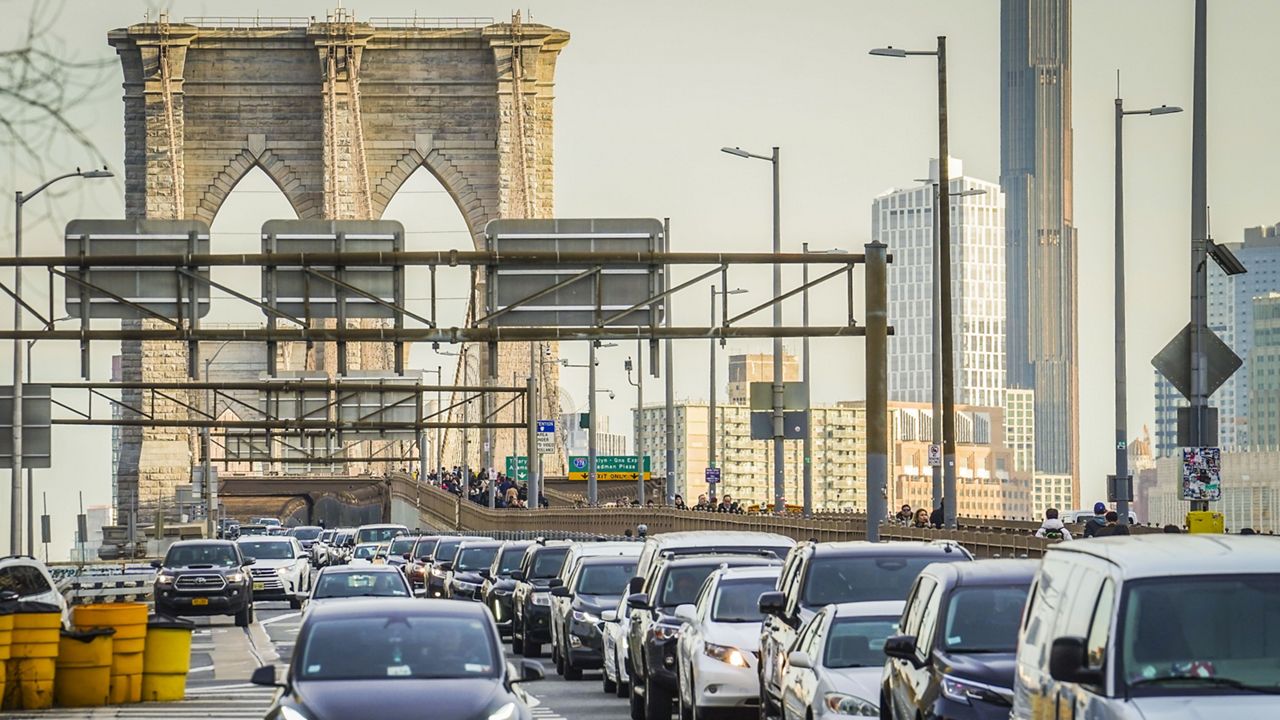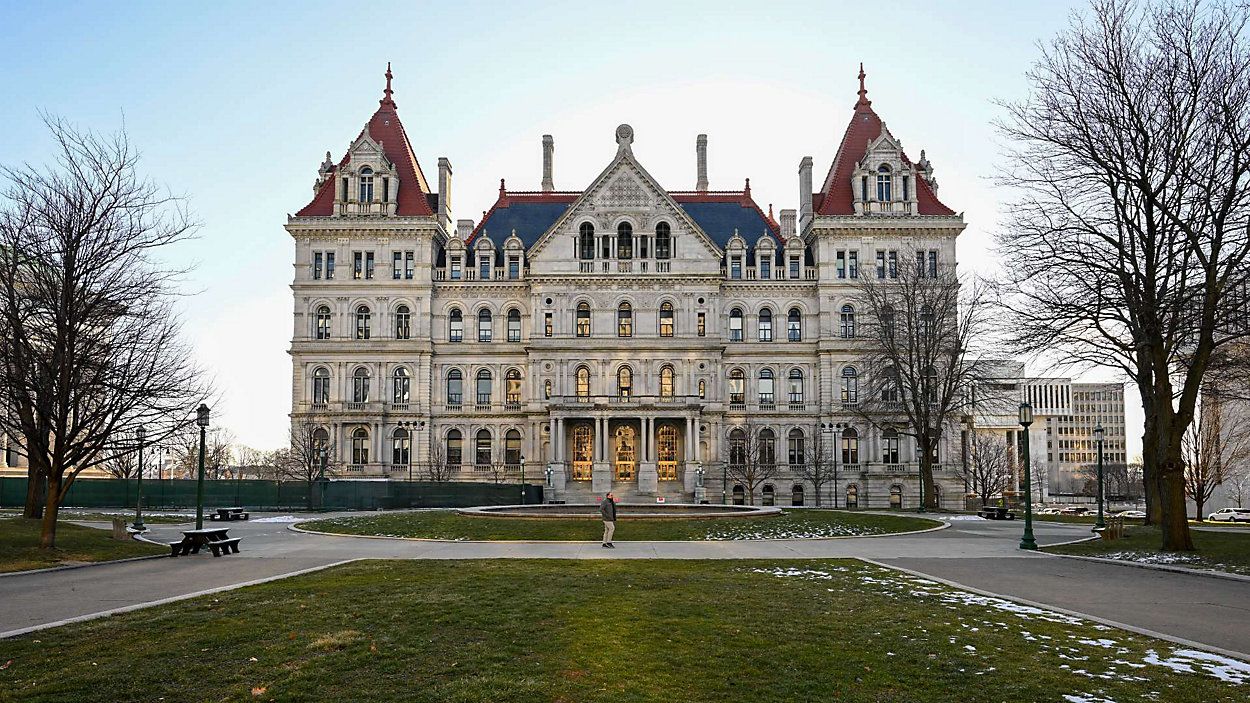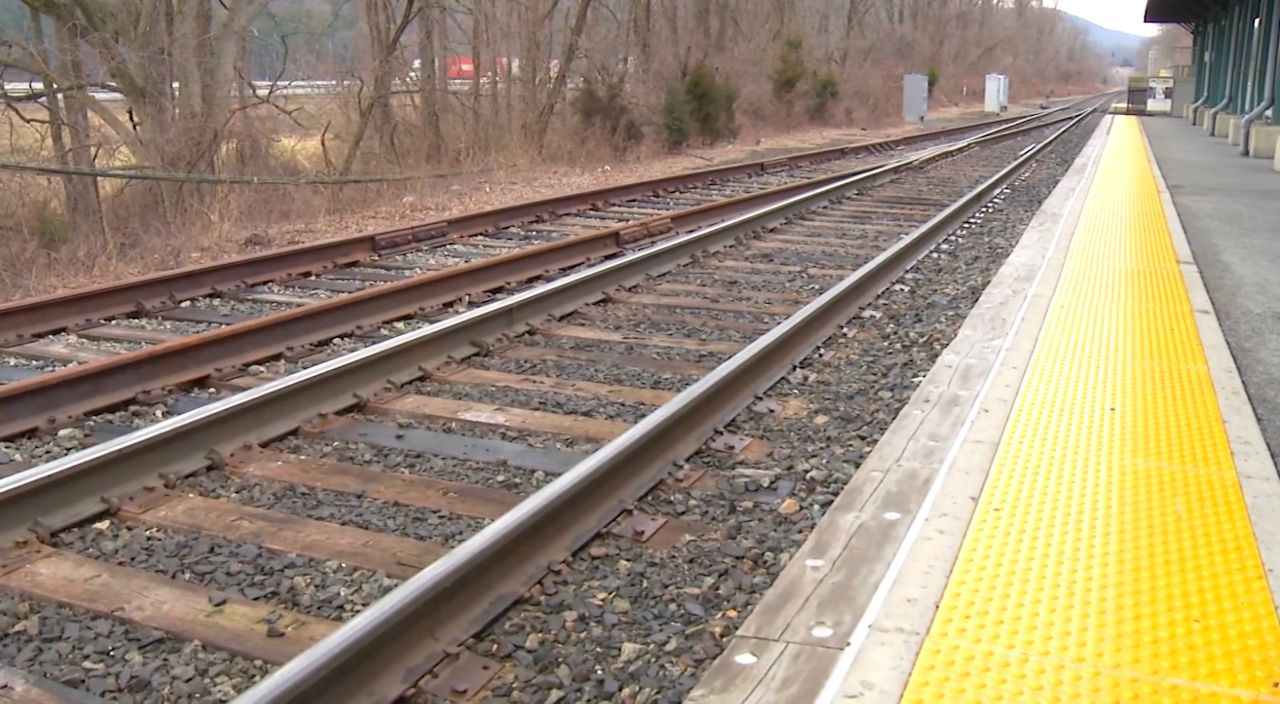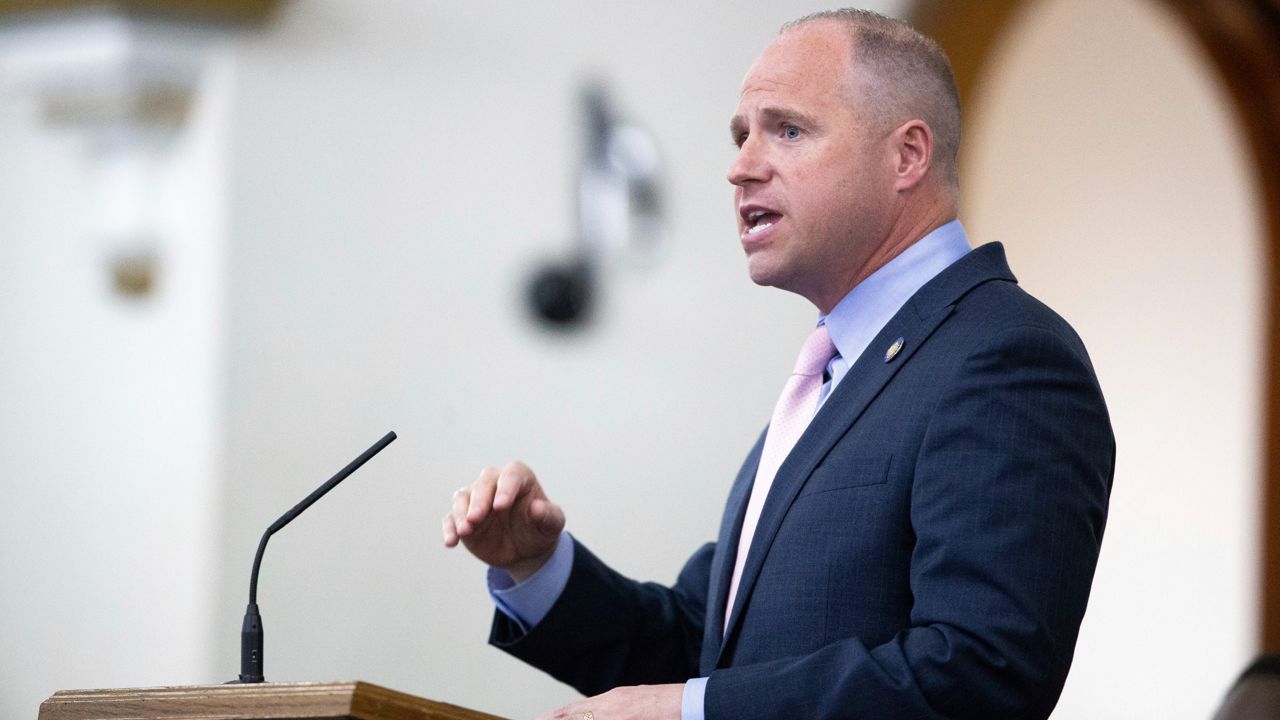New state Budget Director Blake Washington quietly started his key position within Gov. Kathy Hochul's administration earlier this month as the first talks commence to address next year's looming $9.1 billion deficit.
Gov. Hochul appointed Washington, a longtime budget advisor to the state Assembly, to the role in late July — succeeding interim director Robert Megna.
"Since taking office earlier this month, Director Washington has hit the ground running, meeting with constituents and stakeholders from across the state to begin working on a budget that serves the needs of all New Yorkers," Division of the Budget spokesman Tim Ruffinen said in a statement Monday. "We look forward to unveiling the Fiscal Year 2025 budget this winter, as required by law."
The Budget Division will release its next quarterly update on the state's financial plan by the end of October. The document will include more details about how the influx of thousands of asylum seekers from the southern border is changing the state's budget outlook, according to the department.
State agencies will need to keep their upcoming budget requests flat, or without additional spending, budget officials said. Washington will soon prepare the annual call letter sent each fall to state agencies, providing an overview of the state's fiscal picture to departments in addition to deadline.
"As always, it will outline the governor's priorities for the coming year and will advise agency heads of expectations for the coming budget cycle," according to DOB.
Departments keeping their proposals flat will help chip away at the deficit.
"The deficit's based on automatic projections and inflators in the budget, so if you take away some of those, you can start closing the gap that way," said Marino PR Vice President Freeman Klopott, former spokesman for the state Budget Division.
Because the governor sets the budget in New York, Hochul's executive budget proposal, to be released in January, will lay out more details about how the state will balance the budget and close the growing multi-billion-dollar gap, officials said.
This year's $229 billion state budget marked New York's highest spending plan in history — reflecting a steady 9% increase in overall spending in recent years.
Without increased revenue, the next budget will likely be flat, or show reduced spending, with a $9.1 billion budget gap estimated to hang over negotiations in January. The deficit is estimated to swell to $36 billion over three years as federal pandemic aid has dried up and tax receipts continue to decline.
The fiscal hole will make it more difficult for the governor to include significant proposals in her annual State of the State address — and in a critical election year.
The governor may place a greater focus on proposals that don't require additional spending, potentially giving rise to more policies to be included in the next spending plan.
Klopott recounted how the governor's staff and budget office review state spending with a fine-toothed comb through late summer and early fall to help prepare the governor's budget.
Klopott says Hochul has started exploring ideas for her State of the State, which is expected to pick up steam after Labor Day.
"As they move through the fall, that work will intensify," he said. "They work hand-in-hand with the governor's policy and legal teams. ...You're making sure that your proposals in the State of the State don't blow a hole in your in the budget you're gonna have to propose a couple of weeks later."
The state has more than $19.5 billion in its reserves, or "Rainy Day," fund, which Hochul increased from $3.4 billion in 2021 in preparation for the worst-case financial scenario.
Several factors could deepen or ease the deficit, as Hochul has said the state must increase its $1.5 billion investment to house thousands of incoming migrants to New York City and other upstate communities.
Lawmakers will also feel the pressure to tackle housing — largely nixed from last year's budget after legislative leaders failed to reach consensus — and to avoid cutting historic spending in education and health care ahead of next year's elections.
Budget officials say with the available reserves and work to be done, they're hopeful the gap can be eliminated without significant cuts to state services and programs.
While progressive lawmakers call to increase taxes on the rich, Patrick Orecki, state policy director with the Citizens Budget Commission, says high tax rates on New York's top income earners and changes in their income and capital gains have reduced New York's tax receipts.
"We have a big tax-collections month expected for September, so how that plays out will have a big impact on the state's budget landscape," Orecki said Monday.
Budget officials will focus on high-income earners in the state, Orecki said.
"That's where the state gets a lot of its volatility and a lot of its revenue from," he added. "So as that income bracket changes and their income changes, that'll have a big, big impact on the state's budget gaps. The state has really high tax rates on the highest income earners, so any swing in their incomes is going to drive a big change in the tax receipts."
Medicaid and school aid spending — the two most expensive areas in the budget — will likely be eyed first to find savings, Orecki said, adding the state's $5 billion in annual tax credits meant to spur economic development aren't netting their desired results.
"That's another area where savings are possible," he said.









